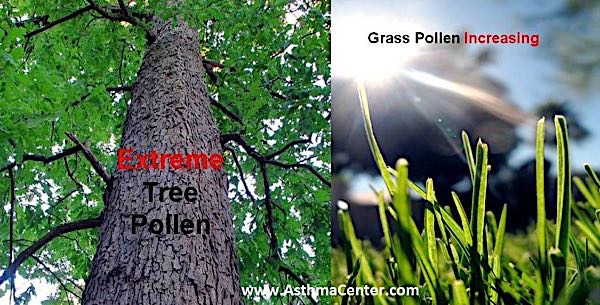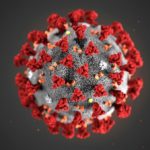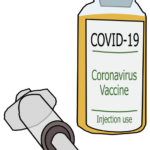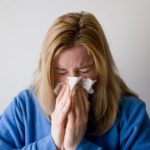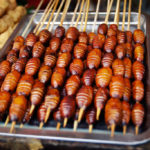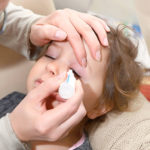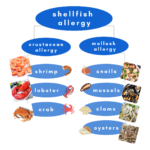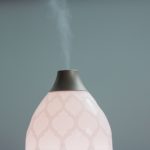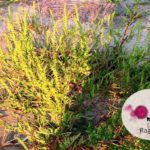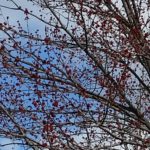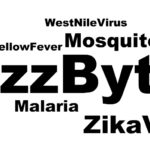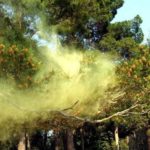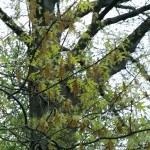allergies, allergy, allergy shots, allergy skin testing, allergy symptoms, birch tree pollen, Dr. Donald Dvorin, grass pollen, local pollen count, mold spores, mulberry tree pollen, oak tree pollen, pine tree pollen, pollen, pollen count, spring, The Asthma Center, tree pollen
Extreme Tree +More Grass & Molds = Misery Monday
Tree pollen levels are extreme today. When pollen volume reaches the extreme range, there is the potential for severe allergy symptoms.
“Oak Tree Pollen looks like it’s in the peak phase which will continue for the next seven days, and then I would expect Pine Tree Pollen to dramatically increase,” Dr. Dvorin reports after finishing today’s local pollen count.
“Grass pollen is up, and I expect it to keep increasing—historically, our area sees the peak of the Spring Grass Pollen season right before Memorial Day, and Outdoor mold spores were increased today too, probably due to all the rain we had for more than a week,” he warned.
Tree Pollen is Extreme.
Oak Tree Pollen continues as the principal tree pollen in the air in the Delaware Valley accounting for nearly 90% of all tree pollen in the suburban (Mount Laurel, NJ) air sample and more than 75% in the urban (Philadelphia, PA) air sample.
Mulberry Tree Pollen increased in both air samples. Of note however, Mulberry tree pollen once again exhibits a stronger presence in the Philadelphia, PA air sample. (For more information read “Street Tree Mulberry Struts it’s Stuff” )
Birch Tree Pollen decreased in both air samples and today represents only an estimated 3% of overall tree pollen.
Pine Tree Pollen is slightly increased. Other tree pollen observed include Ash, Juniper/Cedar, Hemlock, Hickory/Pecan, Sweet Gum, Sycamore, and Walnut.
Grass Pollen is Moderate.
For the fourth local pollen count in a row, Grass pollen increased again and is moderate.
Outdoor Mold Spores are Very High.
Outdoor mold spores levels increased to very high.
Of note if you are allergic to outdoor mold spores, the “jump up” in the counts was dramatic for both air samples but more so in the suburban (Mount Laurel, NJ) air sample than in the urban (Philadelphia, PA) air sample.
No Ragweed or Other Weed Pollen is seen.
Grass Pollen Allergy Preparedness: More Important than Ever
It’s not uncommon for individuals with grass pollen allergy to also have other allergic sensitivities. In fact, in The Asthma Center’s 25 years of allergy skin testing, it is more common to see individuals who have multiple allergies rather than a sensitivity to grass pollen alone.
When local pollen counts are like today’s count with Tree pollen remaining extreme and potentially triggering severe symptoms and outdoor mold spores at very high levels, it is crucial to be prepared for Grass Pollen Allergy.
What Can You Do?
-
Recognize the symptoms
Many individuals recognize the “typical” spring allergy symptoms triggered by grass and tree pollen such as sneezing, itchy and watery eyes, and congestion. Less commonly recognized is the fact that grass pollen may be the source behind puffy eyes (eye allergy) and contact skin or rashes (skin allergy.) Many individuals are allergic to both trees and grass, making this time of year particularly miserable (don’t miss our recent blog: Blue Skies, Red Eyes)
-
Define your allergy triggers
At The Asthma Center, we know that no two people are exactly alike – which is why our evaluations and treatment programs are customized and tailored to fit each patient’s allergies, asthma, and sinus needs and concerns. Grass pollen sensitivity is just one part of our Allergy Skin Test. Based on our board certified Allergists clinical experience and Dr. Dvorin’s historical aeroallergen data, our team of specialists can help determine your level of sensitivity to the most common grasses in the Delaware Valley including June, Kentucky Blue, Meadow Fescue, Orchard, Perennial Rye, Redtop, Sweet Vernal, and Timothy.
-
Review your treatment plan for maximum symptom management
It’s not too late to Get Relief and feel better!
Grass pollen allergy treatment options are similar to other pollen treatments, and many factors will play a role on what is the best treatment plan for you. If your allergies are making you miserable, it is best to see a qualified (board certified) allergists who can evaluate and help you manage your specific issues. Allergies are often mis-diagnosed with other non-allergic conditions but with the proper diagnosis and customized treatment, it is possible to get relief!
Allergy shots have been shown to be of help to some individuals with grass pollen allergy. Another form of immunotherapy, sub-lingual (where a tablet is dissolved under the tongue) has recently become available for the treatment of grass pollen allergy. Unfortunately, studies have shown that this treatment works best when an individual has a single allergy but it is rare for an individual to only be allergic to grass pollen. In The Asthma Center’s experience, it is much more common for individuals to have multiple triggers with unique levels of allergic sensitivity and therefore a personalized approach is required in order to achieve the best outcomes and help our patients get relief.
To benefit from allergy shots or sub-lingual immunotherapy, these treatments should be started approximately three months before the season. While it may be too late to start allergy shots for the 2016 Spring season, it’s not too late to Get Relief, starting with allergy skin testing to determine your specific triggers and levels of allergic sensitivity!
-
Avoid or Limit Grass Pollen Exposure
The first step in avoiding or limiting grass pollen exposure is to know when grass pollen is present in the air. Dr. Dvorin collects, counts, and reports local air samples for the Delaware Valley every day Monday through Friday (check back in daily or subscribe to receive local pollen and mold spore counts by email.)
Grass pollen tips / Does the smell of cut grass bother you?
Mowing your lawn regularly can help cut down on the pollination of grasses on your property. However, many people experience allergy symptoms when exposed to the smell of freshly cut grass. Allergic reactions to mowed grass are more likely from the non-pollen parts of the grass containing allergenic proteins or molds being stirred up in the mowing process. When you mow your lawn, allergen concentration of this type will dramatically increase for a short period of time during and immediately after you mow. So, mowing your lawn will often be beneficial in the long-term, though it may aggravate your allergies short-term. Reactions to cut grass sometimes can go beyond the Spring grass pollination season as well. Again, this is not due to grass pollen but from exposure to mold spores or reactions to other grass antigens in the blades of grass.
You should also:
- Wear long sleeves and long pants when mowing the grass. Be sure to shower & wash your hair afterwards.
- Limit time outdoors during the early morning hours when the most pollen is released
- Sleep with windows closed and drive with windows up (Don’t miss our recent blog Shut the Door, Seal the Windows )
- Beware of tracking grass pollen into your home (kids, pets especially, newspaper sleeves, and on shorts and jackets)
- Shower and wash your hair after extended outdoor exposure
-
Know Your Local Pollen Count
Be sure to check back in for The Asthma Center’s daily Pollen and Mold Spore Count, the Delaware Valley’s only Official count station which is certified by the National Allergy Bureau. Subscribe to receive our daily counts by email or check out some of our other blog posts to learn more about what is in the air, how it can affect you, and what you can do about it.
Get Relief-Saturday appointments are available!
The best way to manage your allergies is to find out exactly what’s causing your symptoms. The Asthma Center has 9 locations in PA & NJ with the following Saturday hours in addition to our normal Monday – Friday business hours.
May 7 and May 14: the Mount Laurel, NJ location will be seeing patients.
May 14: the Hamilton, NJ location will be seeing patients.
May 14 and June 4: the Langhorne, PA office will be seeing patients.
Recent
Popular

